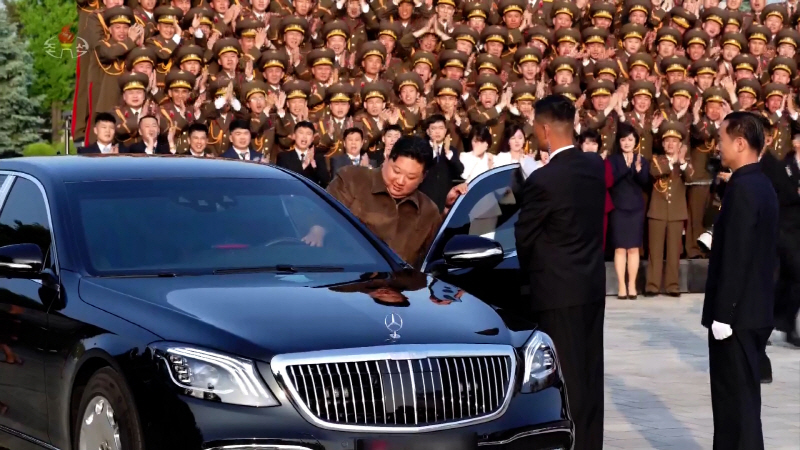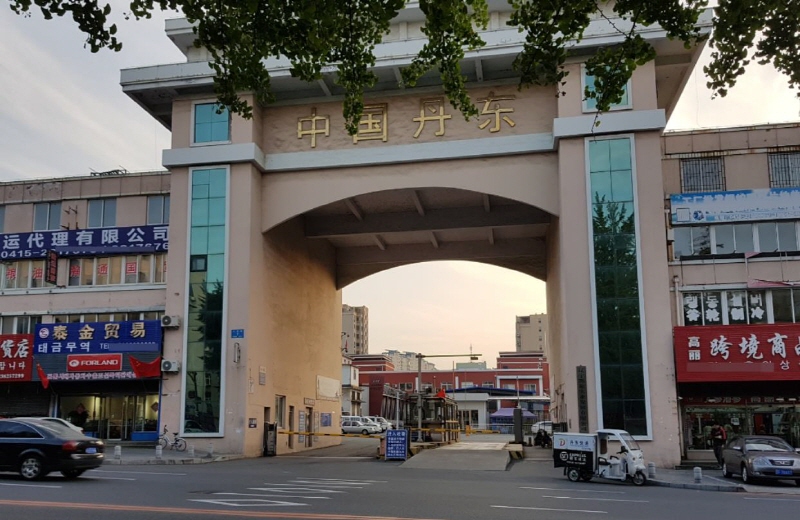Amid growing signs of unusual tension between North Korea and China, it was reported on September 12 that Chinese authorities have intensified crackdowns on North Korean smuggling activities in border regions.
According to sources, China has not only confiscated a variety of smuggled goods but also seized speedboats used by North Korea for maritime smuggling.
Notably, North Korea’s request for the return of items reportedly intended for the personal use of its leader Kim Jong-un was also denied by Chinese authorities. This move suggests that China is going beyond closing the “back door” on sanctions and is now targeting North Korea’s essential supply channels.

Multiple sources familiar with North Korean affairs confirmed that China recently mobilized public security forces, customs officials, and coast guard units to seize a significant volume of North Korean smuggled goods, extending their crackdown beyond land routes to maritime smuggling activities.
One source mentioned that “the Chinese coast guard recently used tear gas guns during the crackdown on a North Korean vessel” and that a North Korean speedboat used for smuggling was confiscated. Moreover, Chinese customs reportedly intercepted smuggled goods en route to North Korea from Europe, including items described as “Supreme Leader Kim Jong-un’s personal goods.” Despite North Korea’s request to return these items, China refused.
Although the exact nature of the confiscated goods remains unclear, they are believed to be luxury items or personal goods essential for Kim’s leadership activities. China’s refusal to return these items is seen as a stern warning to North Korea, indicating that the crackdown will not exempt even the highest-priority goods.

Signs of China’s systematic crackdown on North Korean smuggling activities have emerged in various areas. Another source noted, “Public security forces are not only arresting smugglers but also detaining those supplying goods to North Korea, tracing their past financial transactions and freezing related accounts.”
Rumors circulated that hundreds of smugglers had been arrested by Chinese authorities following intensified crackdowns in the border regions starting earlier this year, with some of the arrests reportedly involving North Korean workers earning foreign currency in China.
The scale of the confiscated goods is also significant, including luxury items and drugs, with the total value of the seized items amounting to billions of Chinese yuan. Among the seized items was a used train, which has since appeared on a Chinese court’s auction list, according to the source.
North Korea-China trade has shown a downward trend. According to China’s General Administration of Customs, trade between the two countries in July was $144.75 million, down 18.8% from the previous month’s $178.45 million. This marks the third consecutive month of decline since April when trade reached $193.99 million.
The crackdown on smuggling also appears to be affecting North Korea’s military production, an area Kim Jong-un has heavily invested in. A source explained that “due to China’s crackdown, North Korea has encountered difficulties in procuring key materials such as reconnaissance satellite components and military supplies, which may have led to a scaling back of its satellite launch plans.”

Kim Jong-un had initially announced plans to launch three reconnaissance satellites this year during the 8th Plenary Meeting of the Workers’ Party late last year. However, after a failed launch attempt in May, no further launches have been attempted.
With over 90% of North Korea’s foreign trade dependent on its 1,400-kilometer (approximately 870-mile) border with China, the current crackdown poses a direct threat to Kim’s economic activities, particularly given the strain imposed by international sanctions. China’s recent moves are seen as a clear indication that it can squeeze North Korea’s economic lifeline whenever it chooses, which could have significant implications for Kim’s regime.
In response, North Korea appears to be diversifying its smuggling routes, with reports suggesting it is exploring new paths, such as those through Nampo to Hong Kong and Rajin to Vladivostok. Other routes, like those from Hunchun to Wonjeong-ri, have also been identified.
This crackdown reflects China’s broader efforts to target not only the large-scale smuggling route between Dandong and Sinuiju but also smaller-scale smuggling operations along peripheral routes, such as Changbai-Hyesan.
Oh Kyung-seop, a researcher at the Korea Institute for National Unification, said, “The tension between China and North Korea stems from their strategic interests, as China views the Korean Peninsula through the lens of U.S.-China strategic competition, while North Korea positions itself as a front-runner in anti-American solidarity. Unless these structural factors change, the unusual tension between North Korea and China is likely to persist.”
BY YEONGGYO CHUNG, YOUNGNAM KIM [chung.yeonggyo@joongang.co.kr]




